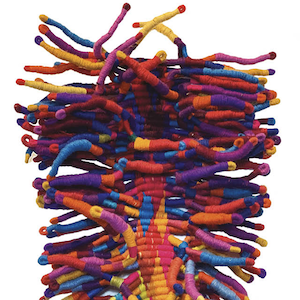Private Influence
By Jo Phillips
How to be an influencer while retaining your privacy
Image on left by Piyapong Saydaung from Pixabay
Being an influencer is different from being a regular social media user. An influencer is someone who has established a substantial following on social media in various areas. For example, there are fashion influencers, beauty influencers, health influencers, fitness influencers, or even home organisation influencers. The idea is that they influence and persuade people to follow their tips and lead, using authenticity and vast reach. Typically, influencers will work with brands in their niche to create advertising content, offer discounts, or get free items.

Image by Markus Winkler from Pixabay
Rules to follow
With the vast popularity of social media in 2022, there are a number of rules that, according to ExpressVPN, everyone should follow for staying safe and private online. These include removing metadata from photos, tagging your location after you have left, having public and private accounts, and being cautious of linking multiple accounts together. Many of these are common sense, and some are platform-specific. But when you are an influencer with a reach that could total billions, there are some additional specific points to take into account. When you have a sort-of celebrity status online, sadly, you are more prone to encountering issues with privacy; therefore, you should adhere to the general guidelines and suggestions, but additional ones as well.
Careful with geotagging
It is always fun to check-in where you are or tag the location of an image, but as National Geographic shows, this can bring risks. While general social media users should wait until they have left before tagging, influencers should be even more cautious. Tagging certain locations could indicate a rough area where you live, which can then be narrowed down. It can also let people know about your favourite coffee shop or restaurant, making it easier to find you.
Also, if you tag yourself out of town, it might alert people that you are not home, giving a free pass to thieves to break into your home. Tagging your location gives people much more information than just where you have been. It can tell them where you are often, giving more opportunity to nefarious actors.
Don’t post with patterns
Take a look at your social media account – does it give anyone an insight into your daily routine? For example, your morning run, gym, weekly glam appointment, or commute to work? Often, we do not realise that our posts on social media provide patterns of our activities and behaviour that can be used to predict where we may be at a certain time. This can increase the chances of people bothering us and can cause a security risk.
When making posts about regular activities, try and make sure the day of the week and time of day is not specified. Additionally, mix up the days you post that kind of content so that it does not become predictable or a pattern. Self-auditing our social media accounts is a great way to understand if we are intentionally sharing our diaries with the world.
Pay attention to the background
Last but not least, be careful what you post in the background. It is easy to take a photo, upload it, and not think about what else is in the image. Perhaps the background shows a view from your window that can identify your home, or maybe the backdrop of a selfie has an easily identifiable location near your child’s school. Some influencers have also been caught out by accidentally uploading content, including an address on a letter, a phone number, or other kinds of sensitive information.
Always make sure your images do not contain information that can be harvested, used, or pieced together with additional information to create a detailed picture of your life or that of those close to you. Remember, you also have to ensure the privacy of your family members who may not be in the spotlight.
Regardless of what kind of influencers are, as Forbes notes, great followings come with great risks and a great need to stay on top of what information you publish. As mentioned, it is not just about what you publish, but what these posts, when pieced together, can say about you and your life. We may think we are being careful but it is easy to accidentally give more away than we anticipate.



